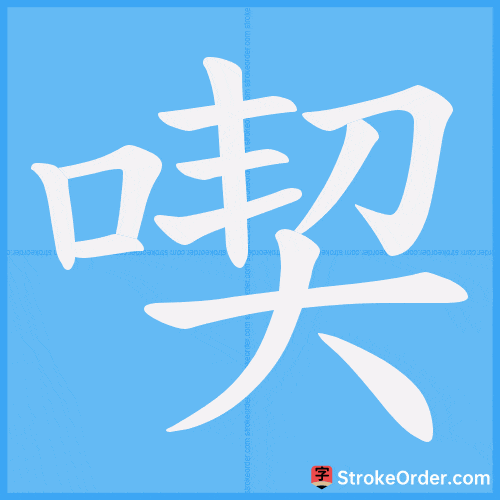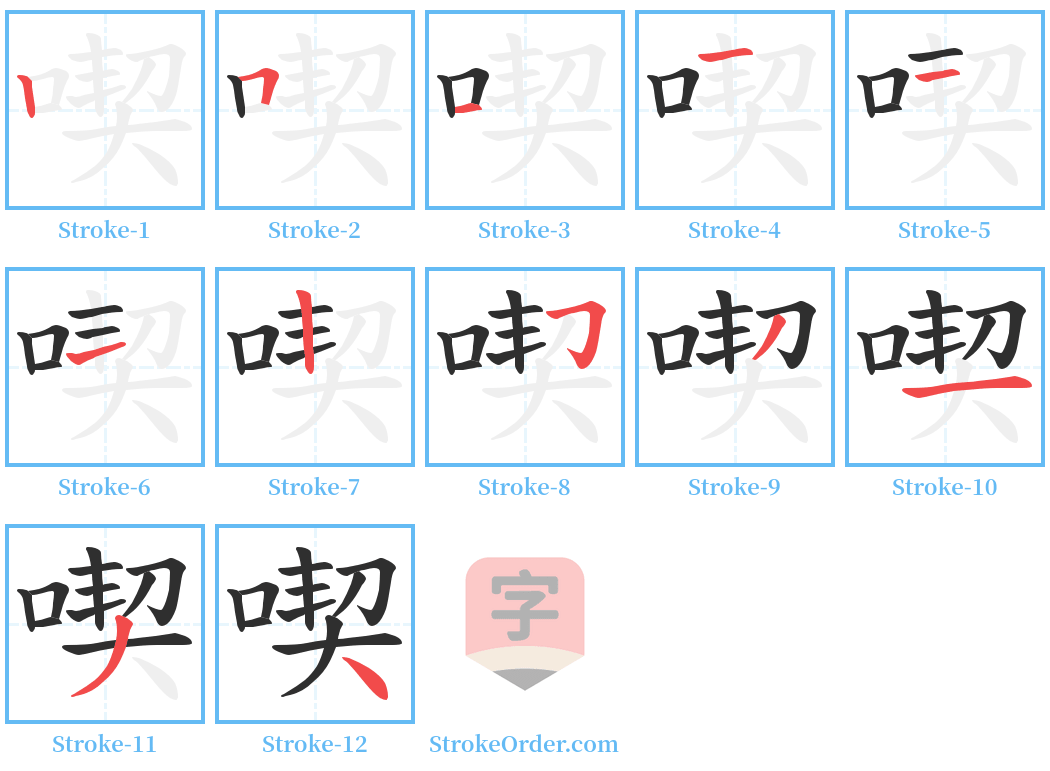喫 Stroke Order
Animated Stroke Order of 喫

Stroke Order Diagrams for 喫

Information of 喫
Pinyin
chī
Radical
口
Strokes
12 strokes
Usage
★★
Definition
喫:
1. Same as "吃" (to eat).
2. To drink.
3. To inhale.
4. To bear; to endure.
5. Preposition indicating passivity, equivalent to "被" (used in early vernacular).
6. To eliminate. Often used in military or game contexts.
喫:
1. Same as "吃". "喫, 啖也." (Yupian, Koubu: "喫 means to eat.")
2. To drink. "喫, 飲也." (Pianhai Leibiann, Shenti Lian, Koubu: "喫 means to drink.")
3. To inhale. For example: 喫烟 (to inhale smoke), 喫墨纸 (to absorb ink paper).
4. To endure; to bear. "喫拳何似打拳时." (Song, Luo Dajing, "Crane Forest Jade Dew, Supplement" Volume 2: "How does bearing a punch compare to being punched?").
5. Preposition indicating passivity, equivalent to "被". "喫, 猶被也." (Zhang Xiang, "Shi Ci Quyu Ci Hui Shi" Volume 5: "喫 is similar to 被.")
6. To eliminate. Often used in military or game contexts, e.g., 喫掉敌人一个团 (to eliminate an enemy regiment); 拿车来喫他的炮 (to counter his artillery with a vehicle).
Verb: To chew food in the mouth and swallow it. Sometimes inhaling or drinking liquids is also referred to as "吃".
[Example words]: 吃饭 (to eat a meal), 吃茶 (to drink tea), 吃药 (to take medicine).
Verb: To inhale or absorb.
[Example words]: 吃烟 (to inhale smoke), 吃墨 (to absorb ink).
喫詬:
1. To argue forcefully.
2. In ancient tales, a person known for debating. "使知索之而不得,使離朱索之而不得,使喫詬索之而不得也." (Zhuangzi, "Heaven and Earth": "Make them seek what they cannot obtain, make them seek the red wax they cannot obtain, make them seek arguing they cannot obtain.")
Adjective: To stutter; having difficulty speaking. "吃, 言蹇难也." (Shuowen Jiezi, Koubu: "吃 means speech difficulty.")
[Example word]: 口吃 (stutter).
Adverb: Describing a laughing sound. "笑吃吃不止." (Han, Ling Xuan, "Zhao Feiyan Waizhuan": "The emperor embraced the favored consort in the seventh tent, laughing non-stop in a jovial manner.")